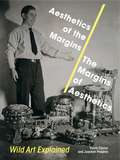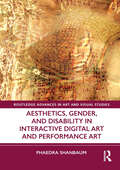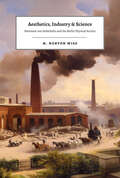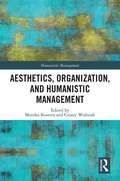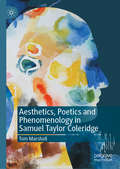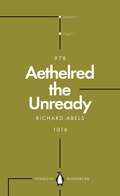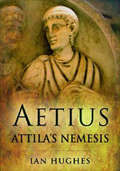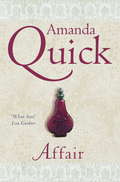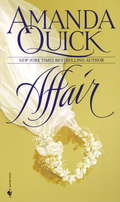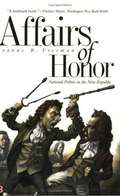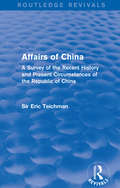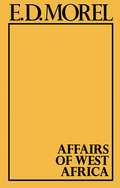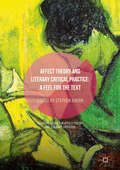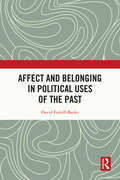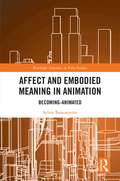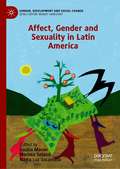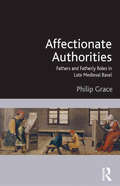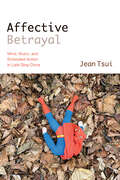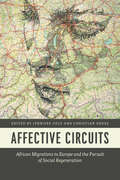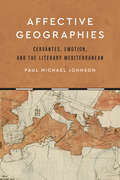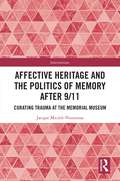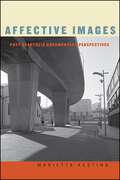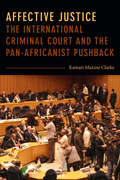- Table View
- List View
Aesthetics of the Margins / The Margins of Aesthetics: Wild Art Explained
by David Carrier Joachim Pissarro"Wild Art" refers to work that exists outside the established, rarified world of art galleries and cultural channels. It encompasses uncatalogued, uncommodified art not often recognized as such, from graffiti to performance, self-adornment, and beyond. Picking up from their breakthrough book on the subject, Wild Art, David Carrier and Joachim Pissarro here delve into the ideas driving these forms of art, inquire how it came to be marginalized, and advocate for a definition of "taste," one in which each expression is acknowledged as being different while deserving equal merit.Arguing that both the "art world" and "wild art" have the same capacity to produce aesthetic joy, Carrier and Pissarro contend that watching skateboarders perform Christ Air, for example, produces the same sublime experience in one audience that another enjoys while taking in a ballet; therefore, both mediums deserve careful reconsideration. In making their case, the two provide a history of the institutionalization of "taste" in Western thought, point to missed opportunities for its democratization in the past, and demonstrate how the recognition and acceptance of "wild art" in the present will radically transform our understanding of contemporary visual art in the future.Provocative and optimistic, Aesthetics of the Margins / The Margins of Aesthetics rejects the concept of "kitsch" and the high/low art binary, ultimately challenging the art world to become a larger and more inclusive place.
Aesthetics of the Margins / The Margins of Aesthetics: Wild Art Explained
by David Carrier Joachim Pissarro“Wild Art” refers to work that exists outside the established, rarified world of art galleries and cultural channels. It encompasses uncatalogued, uncommodified art not often recognized as such, from graffiti to performance, self-adornment, and beyond. Picking up from their breakthrough book on the subject, Wild Art, David Carrier and Joachim Pissarro here delve into the ideas driving these forms of art, inquire how it came to be marginalized, and advocate for a definition of “taste,” one in which each expression is acknowledged as being different while deserving equal merit.Arguing that both the “art world” and “wild art” have the same capacity to produce aesthetic joy, Carrier and Pissarro contend that watching skateboarders perform Christ Air, for example, produces the same sublime experience in one audience that another enjoys while taking in a ballet; therefore, both mediums deserve careful reconsideration. In making their case, the two provide a history of the institutionalization of “taste” in Western thought, point to missed opportunities for its democratization in the past, and demonstrate how the recognition and acceptance of “wild art” in the present will radically transform our understanding of contemporary visual art in the future.Provocative and optimistic, Aesthetics of the Margins / The Margins of Aesthetics rejects the concept of “kitsch” and the high/low art binary, ultimately challenging the art world to become a larger and more inclusive place.
Aesthetics, Gender, and Disability in Interactive Digital Art and Performance Art (Routledge Advances in Art and Visual Studies)
by Phaedra ShanbaumThis book explores the tensions between aesthetics, gender, and disability in contemporary digital media installations and performance art. Notions of agency and subjectivity are connected to four contemporary political issues (artificial intelligence, migration and political violence, contemporary medical technologies and practices, and the Anthropocene) and analyzed against a Western legacy of utopian and dystopian ideas and desires that have shaped, and continue to shape, what it means to be human. The book’s main argument is that agency and subjectivity are not universal attributes; rather they are socio-material entanglements and contextually bound enactments that are strategically negotiated by the subject. Thus, they involve conflict, struggle, and other forms of resistance.The book will be of interest to scholars working in art history, media and cultural studies, disability studies, and gender studies.
Aesthetics, Industry, and Science: Hermann von Helmholtz and the Berlin Physical Society
by M. Norton WiseOn January 5, 1845, the Prussian cultural minister received a request by a group of six young men to form a new Physical Society in Berlin. In fields from thermodynamics, mechanics, and electromagnetism to animal electricity, ophthalmology, and psychophysics, members of this small but growing group—which soon included Emil Du Bois-Reymond, Ernst Brücke, Werner Siemens, and Hermann von Helmholtz—established leading positions in what only thirty years later had become a new landscape of natural science. How was this possible? How could a bunch of twenty-somethings succeed in seizing the future? In Aesthetics, Industry, and Science M. Norton Wise answers these questions not simply from a technical perspective of theories and practices but with a broader cultural view of what was happening in Berlin at the time. He emphasizes in particular how rapid industrial development, military modernization, and the neoclassical aesthetics of contemporary art informed the ways in which these young men thought. Wise argues that aesthetic sensibility and material aspiration in this period were intimately linked, and he uses these two themes for a final reappraisal of Helmholtz’s early work. Anyone interested in modern German cultural history, or the history of nineteenth-century German science, will be drawn to this landmark book.
Aesthetics, Organization, and Humanistic Management (Humanistic Management)
by Monika KosteraThis book is a reaction to the reductionist and exploitative ideas dominating the mainstream contemporary management discourse and practice, and an attempt to broaden the horizons of possibility for both managers and organization scholars. It brings together the scholarly fields of humanistic management and organizational aesthetics, where the former brings in the unshakeable focus on the human condition and concern for dignity, emancipation, and the common good, while the latter promotes reflection, openness, and appreciation for irreducible complexity of existence. It is a journey towards wholeness undertaken by a collective of management and organization theorists, philosophers, artists, and art curators. Reading this book’s contributions can help both academics and practitioners work towards building organizational practices aimed at (re)acquiring wholeness by developing aesthetic awareness allowing for more profound understandings of performativity, insights into the dynamics of power, appreciation of ambiguity and ambivalence, and a much needed grasp of complexity. The varied ways of engaging with art explored by the authors promote imaginative insights into and reflection on the beauty and vicissitudes of organizing, of management knowledge and collective expression. It will be of interest to researchers, academics, practitioners, and students in the fields of organizational theory and practice, business and management history, human resource management, and culture management.
Aesthetics, Poetics and Phenomenology in Samuel Taylor Coleridge
by Tom MarshallThis book re-evaluates the philosophical status of Samuel Taylor Coleridge by providing an extended comparison between his work and the phenomenological theory of Edmund Husserl. Examining Coleridge’s accounts of the imagination, perception, poetic creativity and literary criticism, it draws a systematic and coherent structure out of a range of Coleridge’s philosophical writing. In addition, it also applies the principles of Coleridge’s philosophy to an interpretation of his own poetic output.
Aethelred the Unready: The Failed King (Penguin Monarchs)
by Richard Abels'Æthelred's reign of nearly thirty-eight years was the longest of any Anglo-Saxon ruler. If he had died in AD 1000, history would have remembered him more kindly'Few monarchs of the Middle Ages have had a worse popular reputation than Æthelred II, 'the Unready', remembered as the king who lost England to Viking invaders. But, as Richard Abels shows, the failure to defend his realm was not entirely his alone. Æthelred was in many ways an innovative ruler but one whose challenges - a divided court, a fragile nascent kingdom, a voracious, hydra-headed enemy - were ultimately too great to overcome.
Aetius: Attila's Nemesis
by Ian HughesIn AD 453 Attila, with a huge force composed of Huns, allies and vassals drawn from his already-vast empire, was rampaging westward across Gaul (essentially modern France), then still nominally part of the Western Roman Empire. Laying siege to Orleans, he was only a few days march from extending his empire from the Eurasian steppe to the Atlantic. He was brought to battle on the Cataluanian Plain and defeated by a coalition hastily assembled and led by Aetius. Who was this man that saved Western Europe from the Hunnic yoke? While Attila is a household name, his nemesis remains relatively obscure.
Affair
by Amanda QuickCharlotte Arkendale knew all there was to know about men. After all, she'd made a career out of steering marriage-minded women away from untrustworthy members of the opposite sex.Yet nothing could have prepared her for Baxter St. Ives - an arresting stranger too daring, too determined, too dangerous to be her new man-of-affairs. Still, perhaps he was the perfect person to help Charlotte investigate the recent murder of one of her clients. So she gave him a chance, never realising that Baxter, a gifted scientist, would soon conduct a risky exploration into the alchemy of desire, with Charlotte as his subject. But even as he sets out to seduce Charlotte, a twisted killer lies in wait, ready to part the lovers ...or see them joined together forever - in death.
Affair: A Novel
by Amanda QuickCharlotte Arkendale knew all there was to know about men. After all, she'd made a career out of steering marriage-minded women away from untrustworthy members of the opposite sex.Yet nothing could have prepared her for Baxter St. Ives--an arresting stranger too daring, too determined, too dangerous to be her new man-of-affairs. Still, perhaps he was the perfect person to help Charlotte investigate the recent murder of one of her clients. So she gave him a chance, never realizing that Baxter, a gifted scientist, would soon conduct a risky exploration into the alchemy of desire, with Charlotte as his subject.But even as he sets out to seduce Charlotte, a twisted killer lies in wait, ready to part the lovers...or see them joined together forever--in death.From the Paperback edition.
Affairs Of Honor: National Politics In The New Republic
by Joanne B. FreemanIn this extraordinary book, Joanne Freeman offers a major reassessment of political culture in the early years of the American republic. By exploring both the public actions and private papers of key figures such as Thomas Jefferson, Aaron Burr, and Alexander Hamilton, Freeman reveals an alien and profoundly unstable political world grounded on the code of honor. In the absence of a party system and with few examples to guide America's experiment in republican governance, the rituals and rhetoric of honor provided ground rules for political combat. Gossip, print warfare, and dueling were tools used to jostle for status and form alliances in an otherwise unstructured political realm. These political weapons were all deployed in the tumultuous presidential election of 1800--an event that nearly toppled the new republic. By illuminating this culture of honor, Freeman offers new understandings of some of the most perplexing events of early American history, including the notorious duel between Burr and Hamilton. A major reconsideration of early American politics, Affairs of Honor offers a profoundly human look at the anxieties and political realities of leaders struggling to define themselves and their role in the new nation.
Affairs of China: A Survey of the Recent History and Present Circumstances of the Republic of China
by Eric TeichmanFirst published in 1938, this book aims to be a ‘true and objective’ account of China’s recent history and its present circumstances at the time, drawing on the author’s thirty years of experience as a member of the British consular service in China. The recurrent themes of the period are examined: the efforts of the Chinese leadership to build a new China out of the ruins of the old, their efforts to claim a place of equality among the nations of the world, and the development of the conflict between a resurgent China and the ambitions of Japan. Some of the issues studied were in the process of change and others definitely closed by war — nearly all were affected to some degree.
Affairs of West Africa
by Edmund Dene MorelFirst published in 1968. This volume includes an new introduction on the life of Edmond Morel and his work as a journalist in West Africa and champion of African rights as he stood up against the cruelty of the Leopoldian system in the Congo state.
Affect Theory and Literary Critical Practice: A Feel for the Text (Palgrave Studies in Affect Theory and Literary Criticism)
by Stephen AhernAffect Theory and Literary Critical Practice develops new approaches to reading literature that are informed by the insights of scholars working in affect studies across many disciplines, with essays that consider works of fiction, drama, poetry and memoir ranging from the medieval to the postmodern. While building readings of representative texts, contributors reflect on the value of affect theory to literary critical practice, asking: what explanatory power is affect theory affording me here as a critic? what can the insights of the theory help me do with a text? Contributors work to incorporate lines of theory not always read together, accounting for the affective intensities that circulate through texts and readers and tracing the operations of affectively charged social scripts. Drawing variously on queer, feminist and critical race theory and informed by ecocritical and new materialist sensibilities, essays in the volume share a critical practice founded in an ethics of relation and contribute to an emerging postcritical moment.
Affect and Belonging in Political Uses of the Past
by David Farrell-BanksAffect and Belonging in Political Uses of the Past examines key political events of the past decade, to analyse the relationship between the representation of certain pasts in ‘official’ heritage settings and the use of the same pasts in political discourse. Drawing on data gathered from museums, heritage sites, news articles, political speeches, manifestos, and through digital media such as Twitter, Farrell-Banks demonstrates how a connection with a shared past can move people emotionally and give them the confidence to engage in political action. The book considers how heritage and the past moves in time and space, examining how it shapes political beliefs and action in the present. The work is a timely intervention, calling attention to the political responsibilities that come with heritage work, when these same languages of heritage are adopted to promote a politics of division. Introducing the concept of the ‘moving moment’, a framework by which to research and understand uses of the past, the book demonstrates how the past becomes a potent political tool. Combining critical heritage studies, critical discourse, memory studies and political theory, the book demonstrates new approaches to interdisciplinary studies within heritage. Affect and Belonging in Political Uses of the Past will thus be essential reading for academics and students engaged in the study of heritage, memory, politics, history and media.
Affect and Embodied Meaning in Animation: Becoming-Animated (Routledge Advances in Film Studies)
by Sylvie BissonnetteThis book combines insights from the humanities and modern neuroscience to explore the contribution of affect and embodiment on meaning-making in case studies from animation, video games, and virtual worlds. As we interact more and more with animated characters and avatars in everyday media consumption, it has become vital to investigate the ways that animated environments influence our perception of the liberal humanist subject. This book is the first to apply recent research on the application of the embodied mind thesis to our understanding of embodied engagement with nonhumans and cyborgs in animated media, analyzing works by Émile Cohl, Hayao Miyazaki, Tim Burton, Norman McLaren, the Quay Brothers, Pixar, and many others. Drawing on the breakthroughs of modern brain science to argue that animated media broadens the viewer’s perceptual reach, this title offers a welcome contribution to the growing literature at the intersection of cognitive studies and film studies, with a perspective on animation that is new and original. ‘Affect and Embodied Meaning in Animation’ will be essential reading for researchers of Animation Studies, Film and Media Theory, Posthumanism, Video Games, and Digital Culture, and will provide a key insight into animation for both undergraduate and graduate students. Because of the increasing importance of visual effect cinema and video games, the book will also be of keen interest within Film Studies and Media Studies, as well as to general readers interested in scholarship in animated media.
Affect, Gender and Sexuality in Latin America (Gender, Development and Social Change)
by Cecilia Macón Mariela Solana Nayla Luz VacarezzaThis book emphasizes the significance of affects, feelings and emotions in how we think about politics, gender and sexuality in Latin America. Considering the complex and even contradictory social processes that the region is experiencing today, many Latin American authors are turning to affect to find a key to understand our present situation, to revisit our history, and to imagine new possibilities for the future. This tendency has shown such a specificity and sometimes departure from northern productions that it compels us to focus more deeply on its own arguments, methods, and critical contributions. This volume features essays that explore the particularities of Latin American ways of thinking about affect and how they can shed new light into our understanding of, gender, sexuality and politics.
Affection and Trust: The Personal Correspondence of Harry S. Truman and Dean Acheson, 1953-1971
by Dean Acheson Harry S. TrumanPublished for the first time: the personal letters of President Harry S. Truman and his secretary of state, Dean Acheson, from 1953, the year when both were newly out of office, until Acheson's death at the age of 78 in 1971.
Affectionate Authorities: Fathers and Fatherly Roles in Late Medieval Basel
by Philip GraceIn one of his sermons, the medieval preacher Bernardino of Siena listed seven ’fathers’ to whom one owed obedience: God, one’s natural father, godfather, confessor, benefactor, a government official, and any elderly man. This book seeks to answer the question of why medieval Europeans saw the need for so many ’fathers.’ Why was fatherhood so appealing as a metaphor? Situated at the intersection of social and cultural history, the study draws upon a variety of late-medieval and early-modern sources including witness depositions, personal letters and pedagogical treatises from the city of Basel, Switzerland. It focuses on how people from different walks of life invoked ideas about fatherhood in the pursuit of various goals - not only the ideological agendas of scholarly elites, but also the more pragmatic problems of closing a business deal, claiming an inheritance, or choosing sides in a fistfight - before turning to what these ideas reveal about fatherhood ’on the ground.’ The book argues that it was precisely fatherhood’s basis in lived experience that gave it a familiar ’shape’ in the several roles that fathers played, including provision, affection, disciplinary authority, and education. The most potent rhetorical aspect of fatherhood, however, was not as a static image or shape, but rather the possibility of invoking connections between one role and another. The most potent connection between roles was the idea that fathers were 'affectionate authorities,' combining power over subordinates with desire for their well-being. Tracing the connections and contradictions of these identities, this study provides a nuanced view of concepts of fatherhood on the eve of the Reformation.
Affective Betrayal: Mind, Music, and Embodied Action in Late Qing China (SUNY series in Chinese Philosophy and Culture)
by Jean TsuiAffective Betrayal uses "affect" as an analytical category to explicate the fragility and fragmentation of Chinese political modernity. In so doing, the book uncovers some of the unresolved moral and philosophical obstacles China encountered in the past, as well as the cultural predicament the country faces at present.At the turn of the twentieth century, China's leading reformer Liang Qichao (1873–1929) presented modern political knowledge in musical and visual representational formats that were designed to stimulate readers' bodily senses. By expanding the reception of textual knowledge from "reading" to "listening" and "visualizing experiences," Liang generated an epistemic shift, and perhaps an all-inclusive internal intellectual, philosophical, and moral transition, alongside China's modern political reform. By tracing the marginalized academic and philosophical positions Liang sought to restore in China's incipient democratic movement, Affective Betrayal examines how his attempts to conjoin Confucian morality and liberal democracy expose hidden anxieties as well as inherent contradictions between these two systems of thought. These conflicts, besides disrupting the stability of China's burgeoning modern political order, explain why the import of modern concepts led to China's continued political impasse, rather than rationality and progress, after the 1911 revolution.
Affective Circuits: African Migrations to Europe and the Pursuit of Social Regeneration
by Jennifer Cole Christian GroesThe influx of African migrants into Europe in recent years has raised important issues about changing labor economies, new technologies of border control, and the effects of armed conflict. But attention to such broad questions often obscures a fundamental fact of migration: its effects on ordinary life. Affective Circuits brings together essays by an international group of well-known anthropologists to place the migrant family front and center. Moving between Africa and Europe, the book explores the many ways migrants sustain and rework family ties and intimate relationships at home and abroad. It demonstrates how their quotidian efforts--on such a mass scale--contribute to a broader process of social regeneration. The contributors point to the intersecting streams of goods, people, ideas, and money as they circulate between African migrants and their kin who remain back home. They also show the complex ways that emotions become entangled in these exchanges. Examining how these circuits operate in domains of social life ranging from child fosterage to binational marriages, from coming-of-age to healing and religious rituals, the book also registers the tremendous impact of state officials, laws, and policies on migrant experience. Together these essays paint an especially vivid portrait of new forms of kinship at a time of both intense mobility and ever-tightening borders.
Affective Geographies: Cervantes, Emotion, and the Literary Mediterranean (Toronto Iberic)
by Paul Michael JohnsonFor Miguel de Cervantes, to narrate a Mediterranean experience is to necessarily speak of an emotional experience. Affective Geographies takes as its point of departure the premise that literature is as influential in constructing the Mediterranean as are its geographic, climatic, or economic features. As the writer with the most vast and varied Mediterranean experience of his era, Cervantes is exceptionally well-suited for the critical task of recovering the literary Mediterranean. Engaging with the interdisciplinary fields of Mediterranean studies, affect theory, and the history of emotion, Paul Michael Johnson reads Cervantes’s texts alongside the affective structures that inscribe the Mediterranean as a space of conflict, commerce, expansion, and empire. In particular, he argues that Cervantes’s writing, with its uncommon focus on the Moorish, Islamic, and North African experience, can serve to realign misconceptions about the Mediterranean we have inherited today. Affective Geographies proposes that, with a more than four-hundred-year history of impacting the hearts and minds of readers, Cervantes’s works constitute a literary longue durée, ramifying beyond fiction to alter the popular imaginary and long-term cultural landscape.
Affective Heritage and the Politics of Memory after 9/11: Curating Trauma at the Memorial Museum (Interventions)
by Jacque Micieli-VoutsinasThis book critically examines the institutional curation of traumatic memory at the 9/11 Memorial Museum and its evocative power as a cultural storyteller. Memorial Museums are evocative spaces. Drawing on aesthetic practices deeply rooted in representing the ‘unrepresentability’ of cultural trauma, most notably the Holocaust, Memorial Museums are powerful, popular mediums for establishing cultural values, asking the visitor to contemplate "Who am I?" in relation to the difficult histories on display. Using primary data, this book poses important questions about the emotionally-charged site: what ‘moral lessons’ are visitors imparted with at the 9/11 Memorial Museum? Who is the cultural institution’s primary audience—the imagined community it reconstructs this traumatic history and safeguards its memories for? What does the National September 11 Memorial & Museum ultimately teach visitors about history, ourselves, and others? This work will be of interest to students and scholars in the areas of Human Geography, American Studies, Museum Studies and Public History, Cultural and Heritage Studies, and Trauma and Memory Studies.
Affective Images: Post-apartheid Documentary Perspectives (SUNY Press Open Access)
by Marietta KestingAffective Images examines both canonical and lesser-known photographs and films that address the struggle against apartheid and the new struggles that came into being in post-apartheid times. Marietta Kesting argues for a way of embodied seeing and complements this with feminist and queer film studies, history of photography, media theory, and cultural studies. Featuring in-depth discussions of photographs, films, and other visual documents, Kesting then situates them in broader historical contexts, such as cultural history and the history of black subjectivity and revolves the images around the intersection of race and gender. In its interdisciplinary approach, this book explores the recurrence of affective images of the past in a different way, including flashbacks, trauma, "white noise," and the return of the repressed. It draws its materials from photographers, filmmakers, and artists such as Ernest Cole, Simphiwe Nkwali, Terry Kurgan, Thenjiwe Niki Nkosi, Adze Ugah, and the Center for Historical Reenactments.This book is freely available in an open access edition thanks to Knowledge Unlatched—an initiative that provides libraries and institutions with a centralized platform to support OA collections and from leading publishing houses and OA initiatives. Learn more at the Knowledge Unlatched website at: https://www.knowledgeunlatched.org/, and access the book online at the SUNY Open Access Repository at <a href="http://hdl.handle.net/20.500.12648/7134 ">http://hdl.handle.net/20.500.12648/7134 .
Affective Justice: The International Criminal Court and the Pan-Africanist Pushback
by Kamari Maxine ClarkeSince its inception in 2001, the International Criminal Court (ICC) has been met with resistance by various African states and their leaders, who see the court as a new iteration of colonial violence and control. In Affective Justice Kamari Maxine Clarke explores the African Union's pushback against the ICC in order to theorize affect's role in shaping forms of justice in the contemporary period. Drawing on fieldwork in The Hague, the African Union in Addis Ababa, sites of postelection violence in Kenya, and Boko Haram's circuits in Northern Nigeria, Clarke formulates the concept of affective justice—an emotional response to competing interpretations of justice—to trace how affect becomes manifest in judicial practices. By detailing the effects of the ICC&’s all-African indictments, she outlines how affective responses to these call into question the "objectivity" of the ICC&’s mission to protect those victimized by violence and prosecute perpetrators of those crimes. In analyzing the effects of such cases, Clarke provides a fuller theorization of how people articulate what justice is and the mechanisms through which they do so.
